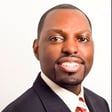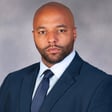
CEO, IT Consulting Firm feat. Monty Ragland (Part 2)
Today’s episode will highlight Executive Leadership, such as CEOs , Presidents, and other top-level managers. Their focus is Setting the company's overall strategy and vision by setting the direction and goals of the company. They have to make tough decisions guiding the company mission, balance the demands of investors and serve as the public face of the company.
Today’s guest is Monty Ragland, President & CEO of ProTeam Solutions Inc. Monty is people-first leader with a love for the CO and those working to make it better. PSI is an IT consulting firm that offers services in areas like executive oversight, project management, business analytics, staff augmentation, and more. Monty recently assumed the helm of PSI in Mid-2022 so I’m excited to hear how these transitional months have been. I’m also excited to learn the day to day of CEOs lives because it feels like a role shrouded in mystery.
Monty Ragland LinkedIn Profile













